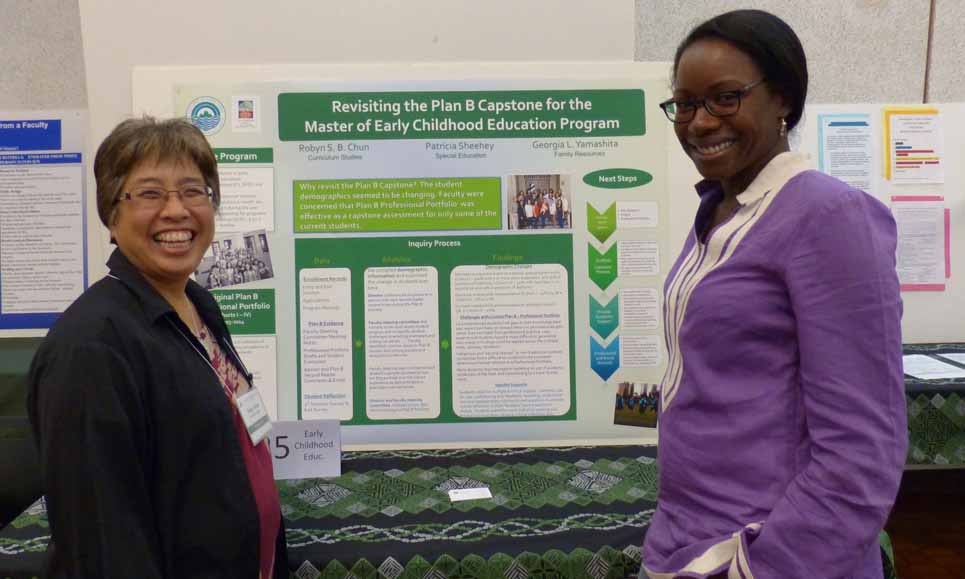
The Master of Early Childhood Education Program is a 2-1/2 year, 30 credit hybrid program is primarily delivered through intensive summer sessions and once a month hybrid seminars. It was conceived in 2003 to meet a statewide need for a graduate level leadership degree in the field. This interdisciplinary collaboration between faculty across three departments in the COE and the CTAHR has graduated four cohorts (90 students). The culminating assessment for the program is a Plan B Portfolio that demonstrates competency in light of five mandatory standards and two student chosen elective standards. The context surrounding ECE has changed dramatically in the past few years as has our student demographics. Our first cohort was composed primarily of long-time practitioners leaders statewide. In contrast, current students are a diverse group ranging from earlier career professionals to “second chancers” with limited involvement in the broader profession. The program also attracts more applicants from non-resident students and has seen decreasing applications from disadvantaged minorities and neighbor island residents. This poster looks at the faculty steering team’s process of revisiting program documents, standards, SLOs and Key Assessments in light of our current student demographics. Multiple data sources were used to identify barriers and to develop supports that scaffold student transitions into graduate level academic writing and to more intentionally support the Plan B Capstone. Proposed revisions to the overall program promote opportunities for active involvement in the profession and broader community and place-based experiential learning to inform community specific Plan B professional contributions. by Robyn Chun, Patricia Sheehey, and Lynn Yamashita
Recommended Citation:
Chun, R., Sheehey, P., and Yamashita, L. (2015, April). Revisiting the Plan B Capstone of the MEd ECE Program. Poster session presented at the Assessment for Curricular Improvement Poster Exhibit at the University of Hawai’i at Mānoa, Honolulu, HI.
